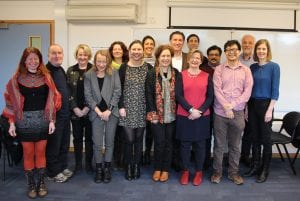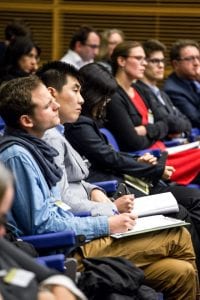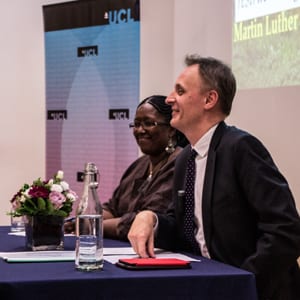A thorn in the side: launch of the UCL Centre for Gender and Global Health
By ucyow3c, on 6 March 2017
By Dr Geordan Shannon, UCL Institute for Global Health
UCL is known for challenging the status quo. It was with this sentiment that the UCL Centre for Gender and Global Health was officially launched on the 16th February 2017.
Led by Professor Sarah Hawkes, the centre will reach beyond academia to work with policy-makers and policy-influencers to address the complex relationship between gender and health.
A global community of change makers and thought leaders converged to discuss innovations in gender and global health research. The daylong event included keynotes, interactive panels, film screenings, Q&A sessions and a networking reception.

Images: Ilan Kelman ilankelman.org
Keynotes
The keynote panellists spoke about key challenges to gender and global health research, policy and action.
Rachel Jewkes, the Director of the South African Medical Research Council’s Gender and Health Research Unit, shared new directions in gender-based violence interventions and highlighted feminist approaches to resilience.
Benno de Keijzer, Professor of Health and Masculinities at Universidad Veracruzana and co-founder of the NGO Salud y Género, challenged the concept of hegemonic masculinity and how it relates to both men’s and women’s wellbeing.
 Close
Close



 From previous experience, the mention of the word ‘gender’ quickly equates to just ‘women’ and more often than not it is predominantly women who take an interest in the subject – an issue that was subsequently tackled in the lecture. I was pleasantly surprised, therefore, to see a large number of men in the audience.
From previous experience, the mention of the word ‘gender’ quickly equates to just ‘women’ and more often than not it is predominantly women who take an interest in the subject – an issue that was subsequently tackled in the lecture. I was pleasantly surprised, therefore, to see a large number of men in the audience.